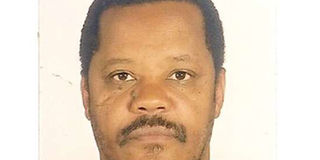Tribute to Sam Moyo, a fearless Pan African expert on land

The late Professor Sam Moyo. Sam is a former Vice-President (1998-2001) and President (2008-2011) of the Council for the Development of Social Science Research in Africa. PHOTO | NATION MEDIA GROUP
What you need to know:
- Sam is a former Vice-President (1998-2001) and President (2008-2011) of the Council for the Development of Social Science Research in Africa.
- Sam’s research focused on rural development with an emphasis on land reform and agrarian change.
- In conversations we had on the sidelines of our many meetings, Sam occasionally recounted this. But he soldiered on. It is unfair that such a titan be taken away in a car crash.
The news of the passing on of Prof Sam Moyo, when it came through on Friday last week, was devastating.
Sam died following a car crash in New Delhi where he was attending a conference.
Attempts to stabilise him failed and, just like that, we lost one of the best academic authorities on the land and agrarian question.
Sam is a former Vice-President (1998-2001) and President (2008-2011) of the Council for the Development of Social Science Research in Africa.
I was lucky to serve in the CODESRIA executive committee that Sam chaired.
But my first memorable engagement with him was at the 30th Anniversary of CODESRIA in 2005.
You might ask why write about Sam, someone an average Kenyan might never have heard of.
It is because of the knowledge that Sam produced, knowledge that could not be confined within national boundaries.
Sam produced knowledge that was particularly relevant to an ordinary African audience.
At the time of his death, Sam was the executive director of the African Institute for Agrarian Studies based in Harare, Zimbabwe.
He founded the Institute in the early 2000s, a time when the land question exploded in Zimbabwe.
This intersected in strange ways with the politics of networking and fund-raising once Sam’s findings came through.
A PRUDENT SCHOLAR
Sam’s research focused on rural development with an emphasis on land reform and agrarian change.
Many scholars have written on these questions, but few have written with the conviction and commitment one encountered in Sam.
He had a consistent political economy entry point.
He saw the land and agrarian question in the broader context of the political and economic developments of the time, inserting within his analysis a study of environmental questions as well the history of social movements.
Sam had conviction. There are academics who write and others who practice what they write.
Sam practiced what he wrote. He did it with the simplicity that Bella Matambanadzo describes in her ode to Sam.
The conviction was clear on the Fast Track Land Reform Programme in Zimbabwe.
The Reforms threw up many dilemmas for everyone, but Sam was never interested in the diversionary elements that sidetracked from concrete research and genuine debate.
He stayed put in Zimbabwe, defined a research agenda, found relevant theoretical frameworks for analysis and allowed these to guide his conclusions.
In an environment where research had serious political implications, locally and internationally, an environment where the conclusions of any research tended to be pigeonholed as reflecting particular political alliances or determined the kind of funding one attracted, Sam’s conclusions certainly exposed the limits of the idea of objectivity.
Many took the easier option of conflating the land question with the political question and to treat the Reform process as completely indistinguishable from Robert Mugabe’s despotism.
A CRUEL WORLD
Instead, Sam researched and documented the realities of rural communities in Zimbabwe and concluded that ‘the character of Zimbabwe’s land reform has been redistributive, and the extent of this has been wide enough to trigger significant progressive changes in the agrarian structure.’
This was a conclusion many shunned.
A range of scholars lined up to label anyone who arrived at this conclusion with all manner of ills.
There is no doubt that Sam’s research reflected the concrete realities of Zimbabwe’s land redistribution and resistance to a culture of imperialism.
It is now comparatively commonplace to encounters research conclusions that confirm Sam’s work, decades after his pioneering work.
But in some quarters, Sam remains the last to be recognised.
For staying true to his academic responsibility, commitment and convictions, Sam was shunned by some institutions and agencies.
In conversations we had on the sidelines of our many meetings, Sam occasionally recounted this. But he soldiered on. It is unfair that such a titan be taken away in a car crash.





